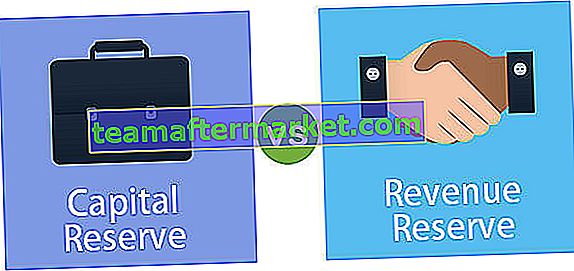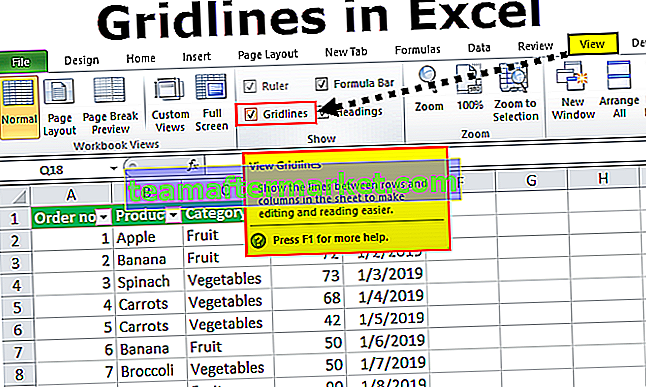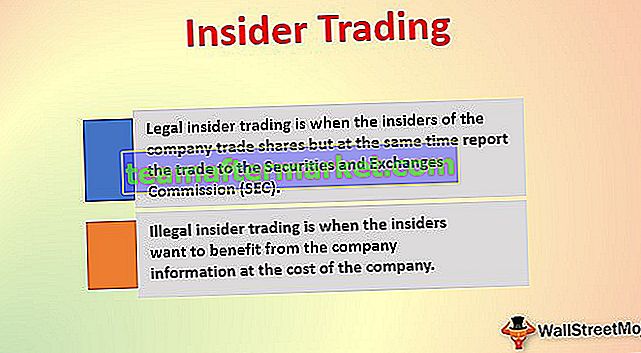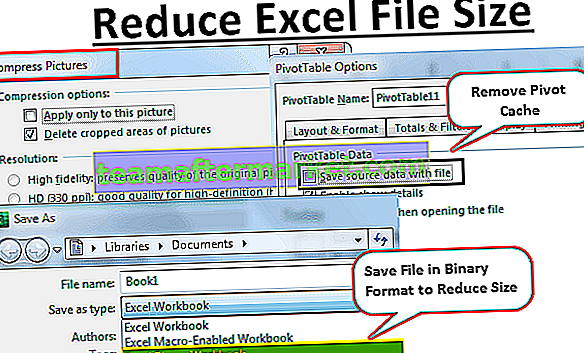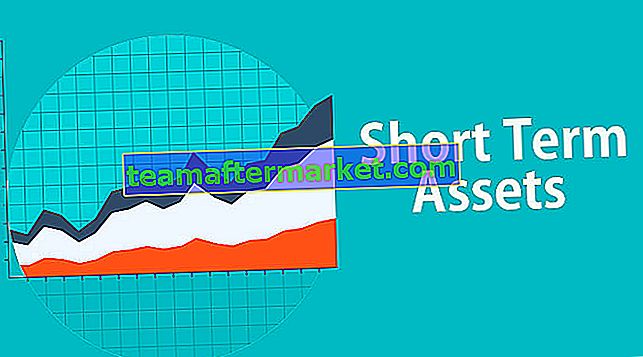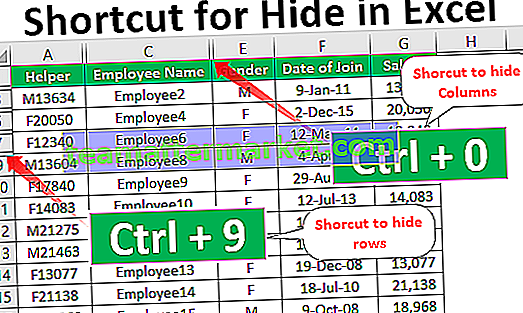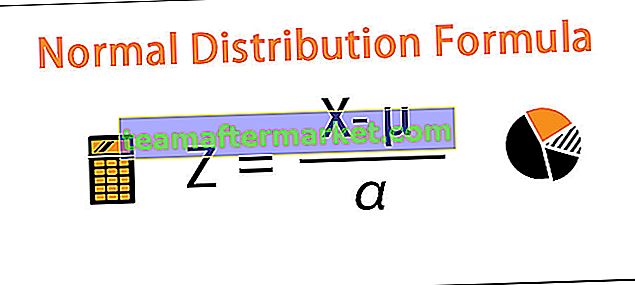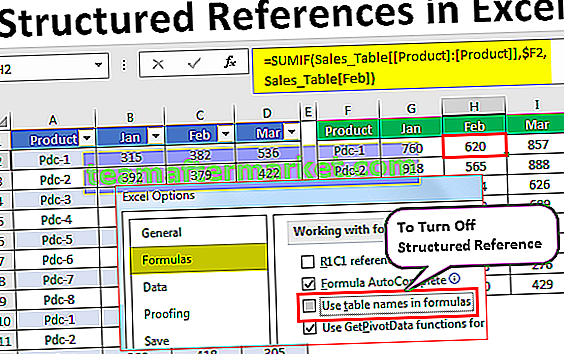Der Hauptunterschied zwischen Kostenrechnung und Management Accounting besteht darin, dass die Kostenrechnung die kostenbezogenen Informationen sammelt und analysiert, die den Benutzern der Berichte nur die quantitativen Informationen liefern, während das Management Accounting die Erstellung der finanziellen und nicht finanziellen Informationen darstellt Das heißt, es handelt sich sowohl um quantitative als auch um qualitative Informationen.
Unterschiede zwischen Kostenrechnung und Management Accounting
Das Management Accounting umfasst viele Aspekte des Geschäfts wie Entscheidungsfindung, Strategieentwicklung, Planung, Leistungsmanagement, Risikomanagement usw. Die Kostenrechnung dreht sich dagegen nur um Kostenberechnung, Kostenkontrolle und Gesamtkostenreduzierung des Geschäfts.
In einfachen Worten ist die Kostenrechnung eine der Untergruppen des Management Accounting. Infolgedessen sind Umfang und Reichweite des Management Accounting viel umfassender und umfassender als die Kostenrechnung. Wir können also sagen, dass das Management Accounting einen Hubschrauberblick auf das Geschäft bieten kann, indem jeder Aspekt qualitativ und quantitativ betrachtet wird. Die Kostenrechnung bietet nur eine Pixelansicht der Kosten für jedes Produkt, jede Dienstleistung oder jeden Prozess.

In diesem Artikel werden Kostenrechnung und Management Accounting ausführlich behandelt.
Kostenrechnung vs Management Accounting [Infografiken]
Es gibt viele Unterschiede zwischen Kostenrechnung und Management Accounting. Werfen wir einen Blick auf diese Unterscheidungen

Nachdem wir uns nun eine Momentaufnahme der Hauptunterschiede zwischen Kostenrechnung und Management Accounting angesehen haben, lassen Sie uns jeden einzelnen im Detail verstehen.
Was ist Kostenrechnung?
Die Kostenrechnung besteht aus zwei Wörtern: "Kosten" und "Buchhaltung".
Lassen Sie uns zunächst verstehen, was „Kosten“ sind. Dann schauen wir uns „Buchhaltung“ an.
Was sind "Kosten"?
Kosten sind Kosten, die einer bestimmten Einheit entstehen. Auf andere Weise sind die Kosten das, was das Unternehmen opfert, um eine Produkteinheit herzustellen.
Was ist "Buchhaltung"?
Buchhaltung ist die Kunst und Wissenschaft, Eingaben aufzuzeichnen, zu klassifizieren, zusammenzufassen und zu analysieren, um die Informationen in Bezug auf Finanzen, Management oder Kosten zu verstehen.
Wenn Sie neu in der Buchhaltung sind, können Sie hier grundlegende Buchhaltung lernen
Was ist "Kostenrechnung"?
Kostenrechnung ist die Kunst und Wissenschaft, Kosten zu erfassen, zu klassifizieren, zusammenzufassen und zu analysieren, um dem Management zu helfen, umsichtige Geschäftsentscheidungen zu treffen.
Wenn Sie die Kostenrechnung professionell erlernen möchten, sollten Sie sich mehr als 14 Stunden Kostenrechnungskurs ansehen
Funktionen der Kostenrechnung
Grundsätzlich gibt es drei Funktionen der Kostenrechnung:
- Kostenkontrolle: Die erste Funktion der Kostenrechnung besteht darin, die Kosten innerhalb der vom Management für ein bestimmtes Produkt oder eine bestimmte Dienstleistung festgelegten Budgetbeschränkungen zu kontrollieren. Dies ist wichtig, da das Management bestimmten Projekten oder Produktionsprozessen begrenzte Ressourcen zuweist.
- Kostenberechnung: Dies ist die Hauptfunktion der Kostenrechnung und die Quelle aller anderen Funktionen der Kostenrechnung. Im folgenden Abschnitt sehen wir, wie wir die Umsatzkosten pro Einheit für ein bestimmtes Produkt berechnen können.
- Kostensenkung: Die Kostenberechnung hilft dem Unternehmen, die Kosten für Projekte und Prozesse zu senken. Kostensenkung bedeutet mehr Gewinn, da sich die Marge natürlich erhöht.
Direkte und indirekte Kosten
Direkte Kosten sind direkt mit der Herstellung von Waren verbunden. Dies bedeutet, dass direkte Kosten direkt als für die Herstellung von Waren verwendet identifiziert werden können. Zum Beispiel können wir über direktes Material und direkte Arbeit sprechen, die bei der Herstellung von Waren verwendet werden. Diese Kosten können wir als direkte Kosten identifizieren.
Indirekte Kosten sind dagegen Kosten, die nicht leicht zu identifizieren sind. Der Grund, warum diese Kosten nicht separat identifiziert werden können, da diese Kosten das Funktionieren mehrerer Aktivitäten unterstützen. Zum Beispiel würde das Mietgeschäft für den Betrieb eines Produktionsbetriebs als indirekte Kosten bezeichnet, da wir nicht feststellen können, wie viel Teil der Miete für die Herstellung von Waren verwendet wird, wie viel für die Aufbereitung des Rohmaterials verwendet wird, wie viel wird verwendet, um die Simulationssysteme zu installieren, mit denen die Arbeiter geschult werden können.
Das Verständnis dieser beiden Arten von Kosten ist wichtig, da wir diese Kosten bei der Berechnung der Umsatzkosten pro Einheit für ein bestimmtes Produkt verwenden würden.
Fixkosten, variable Kosten und halbvariable Kosten
Fixkosten sind Kosten, die sich mit der Zunahme oder Abnahme der Produktionseinheiten nicht ändern. Das heißt, diese Kosten bleiben in einem weiten Bereich des Spektrums ähnlich. Außerdem ändern sich die Fixkosten pro Einheit, wenn die Produktion steigt oder sinkt. Zum Beispiel ist Miete ein Fixpreis. Selbst wenn die Produktion steigt oder sinkt, muss das Unternehmen Monat für Monat die gleiche Miete zahlen.
Variable Kosten sind das genaue Gegenteil von Fixkosten. Variable Kostenänderungen je nach Zunahme oder Abnahme der Produktionseinheiten. Aber selbst wenn sich die gesamten variablen Kosten ändern, bleiben die Kosten pro Einheit und Einheit unabhängig von Änderungen in den Produktionseinheiten gleich. Beispielsweise sind die Rohstoffkosten variable Kosten. Die Gesamtkosten des Rohmaterials ändern sich, wenn die Produktion steigt oder sinkt. Die Stückkosten pro Rohstoff bleiben jedoch auch dann gleich, wenn die Produktion steigt oder sinkt.
Bei halbvariablen Kosten sind beide Komponenten vorhanden. Halbvariable Kosten sind eine Kombination aus Fixkosten und variablen Kosten. Nehmen wir an, Sie zahlen allen Ihren Arbeitern und den Arbeitern, die jeden Monat mehr als 50 Spielzeugeinheiten herstellen, 1000 USD pro Monat als Festgehalt. Sie erhalten zusätzlich 5 USD für jede weitere produzierte Einheit. Diese Art von Löhnen wird als semi-variable Löhne bezeichnet.
Kostenrechnung - Beispiel und Format
Die Kostenrechnung ist viel mehr als eine Kostenaufstellung. Die Kostenaufstellung gibt uns jedoch eine Vorstellung davon, wie die Umsatzkosten pro Einheit für ein bestimmtes Produkt berechnet werden können.
MNC Factory verfügt über die folgenden Informationen. Aus den unten angegebenen Informationen müssen Sie die Umsatzkosten pro Einheit berechnen.
- Rohstoffe - Anfangsbestand: 50.000 USD; Schlussbestand: 40.000 USD.
- Käufe während des Zeitraums: 145.000 USD.
- Direkte Arbeit - 100.000 US-Dollar
- Betriebskosten - 40.000 US-Dollar
- Verwaltungskosten - 20.000 US-Dollar
- Vertriebs- und Vertriebskosten - 30.000 US-Dollar
- Fertige Einheiten - 100.000.
Finden Sie die Umsatzkosten pro Einheit heraus.
In diesem Beispiel wird jede Eingabe gegeben. Wir müssen nur die Zahlen an die richtige Stelle bringen.
Kostenaufstellung von ABC Factory
| Einzelheiten | Betrag (in US $) |
| Rohstoffe - Eröffnungsbestand | 50.000 |
| Hinzufügen: Einkäufe während des Zeitraums | 145.000 |
| Weniger: Rohstoffe - Schlussbestand | (40.000) |
| Materialkosten verbraucht | 155.000 |
| Hinzufügen: Direktarbeit | 100.000 |
| Hauptkosten | 255.000 |
| Hinzufügen: Funktioniert Overheads | 40.000 |
| Betriebskosten | 295.000 |
| Hinzufügen: Verwaltungsaufwand | 20.000 |
| Produktionskosten | 315.000 |
| Hinzufügen: Vertriebskosten | 30.000 |
| Gesamtumsatzkosten | 345.000 |
| Fertige Einheiten | 100.000 Einheiten |
| Umsatzkosten pro Einheit | 3,45 USD pro Einheit |
Was ist Management Accounting?
Management accounting is the process of collecting, analyzing, and understanding the financial statements, statistical, and qualitative information to make sense of how the business is going and what to do in the near future.
Management accounting helps to make short term decisions and also helps strategize for future big events. The idea behind management accounting is to prepare periodical reports which can educate and inform the managers of the company to make effective decisions.
Even if management accounting is much different than financial accounting and cost accounting (cost accounting is one of the sub-sets of management accounting), it gathers information from both of these accounting in producing periodical reports for management.
What can we expect to find in those periodical reports?
The exact motto of these reports is to help management get all the information at their fingertips and use the information to make effective decisions for the business.
Since there is no statutory requirement, these reports are articulated as per the need of the management.
Here are the characteristics of these reports –
- Quantitative and qualitative data points: Financial accounting and cost accounting solely revolves around quantitative data. But only quantitative information isn’t able to portray the whole picture of the business. Rather we should also look at qualitative information to make sense of what’s happening within the business. For example, the absenteeism rate doesn’t depend on any quantitative information; rather it’s purely psychological. Management accounting looks at all aspects of the business – both quantitative and qualitative data points to create reports.
- Predictive information: If you look at financial accounting and cost accounting, you will see that these whole two accounting systems are based on historical information. But in the case of management accounting, the focus is both on historical and predictive information. Since historical information only solves part of the problem, estimated information helps management see the big picture and makes financial statements forward-looking. That’s why in management accounting reports, predictive information is one of the biggest circle-in areas.
- Used for the internal purpose: These reports contain very sensitive information about the business and management. That’s why it is only provided to the management to make effective use of these reports and strategize based on the information provided in these reports.
Importance of management accounting in business
Since we know that management accounting periodical reports serve a great purpose in making effective decisions for management, we need to know the importance of management accounting in business. Here are the top-most factors –
- Forecast the future: As mentioned earlier, the sole focus of management accounting is not on the past, but toward the future. Management accounting propels management to ask – “What company should do in the near future – should it buy more plants? Or should it acquire a few small companies which are experts in producing the raw materials for the company?” Management accounting helps to answer these valid questions and assists to start approaching the decision.
- Forecast cash-flow: Without cash-flow business can’t move molehills, forget about the mountains. So understanding and predicting how much cash-flow the company would be able to generate in the near future is critical. Management accounting helps with budgeting, trend charts to estimate the future cash-flow for business.
- Return on investment: One of the main functions of management accounting is to see how much return it could produce on the investments it has made earlier. Looking at the past gives management an idea about where they went wrong and what to correct in the next investments.
- Understanding performance variances: Since management accounting is more about predictive analysis, naturally there will be variances. Variances are the differences between estimated costs/profits and actual costs/profits. The purpose of management accounting is always to create positive variances and try to learn from the negative variances.
- Create/outsource decision: This is an important question for every business these days – whether to create raw materials/a part of the product or outsource it to a third party. Management accounting helps to see the costs and profits of both of these options and choose the best one among the two.
Tools used in management accounting
There are many tools used in management accounting. Following are top-most which are frequently used –
- Simulations
- Guides to Financial modeling
- Ratios
- Game theory
- Management Information System
- Key Performance Indicators
- Key Result Areas
- Balance Scorecards etc.
Cost Accounting vs Management Accounting – Key differences
There are many differences between cost accounting vs management accounting. Let’s have a look –
- The scope of cost accounting is much narrower. The scope of management accounting is much broader and vaster. Since both of these help make management effective decisions, management accounting has many more tools than cost accounting.
- Cost accounting is the sub-set of management accounting. Management accounting itself is a stand-alone subject on helping management in strategizing well.
- Cost accounting is used for management, shareholders, and stakeholders also. Management accounting, on the other hand, is just for management.
- Statutory audit is mandatory for cost accounting in giant businesses since there can be chances of huge discrepancies. But there’s no requirement of the statutory audit of management accounting.
- Cost accounting is solely based on quantitative data points. Management accounting, on the other hand, is based on both qualitative and quantitative data points.
- Cost accounting has its own norms and its own rules and is not dependent on management accounting. On the other hand, to create effective reports, management accounting is dependent on both cost accounting and financial accounting.
Cost Accounting vs Management Accounting (Comparison Table)
The below table summarizes the key differences between cost accounting vs management accounting.
| The basis for Comparison – Cost Accounting vs Management Accounting | Cost Accounting | Management Accounting |
| 1. Inherent meaning | Cost accounting revolves around cost computation, cost control, and cost reduction. | Management accounting helps management make effective decisions about the business. |
| 2. Application | Cost accounting prevents a business from incurring costs beyond budget. | Management accounting offers a big picture of how management should strategize. |
| 3. Scope – Cost Accounting vs Management Accounting | The scope is much narrow. | The scope is much broader. |
| 4. Measuring grid | Quantitative. | Quantitative and qualitative. |
| 5. Sub-set | Cost accounting is one of the many sub-sets of management accounting. | Management accounting itself is pretty vast. |
| 6. Basis of decision making | Historic information is the basis of decision making. | Historic and predictive information is the basis of decision making. |
| 7. Statutory requirement – Cost accounting vs management accounting | Statutory audit of cost accounting is a requirement in big business houses. | The audit of management accounting has no statutory requirement. |
| 8. Dependence | Cost accounting isn’t dependent on management accounting to be successfully implemented. | Management accounting is dependent on both cost & financial accounting for successful implementation. |
| 9. Used for | Management, shareholders, and vendors. | Only for management. |
Conclusion – Cost Accounting vs Management Accounting
Both cost accounting vs management accounting help management makes effective decisions. But their scope and tools are completely different. As management accounting depends a lot on cost accounting to prepare reports, cost accounting happens to be a sub-set of management accounting. But if we look at the usage, estimation process, data points used, and utility, cost accounting has a much narrower scope than management accounting.
At the same time, to understand management accounting, it is imperative that you understand cost accounting well. That’s why it is important to understand the contrast between cost accounting and management accounting.

